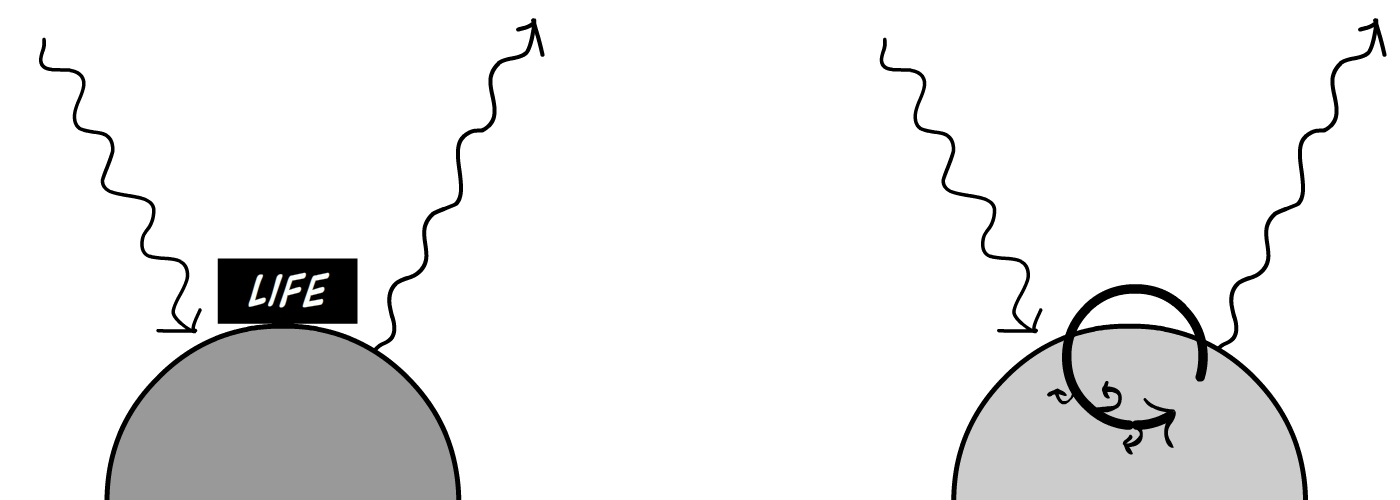In my engagements with people and groups of people around the carbon cycle, I encounter beliefs that appear to be stages along a continuum. The following diagram and table is not intended to be a simple judgment of good/bad, but is an attempt to give context to ongoing shifts in beliefs by describing or signposting the endpoints of the shifts. This description is always rough and premature.
On earth, we have solar energy coming in and longwave radiation or heat going out.

| Life is a passenger on a basically dead planet. | The biosphere does work, a lot of it. Life is the most potent geologic force. | |
| Humans are an aberration and a disturbance in the life of the world. | Humankind is nature becoming self-conscious. | |
| Creation was a long time ago, and the earth has been degraded since then. | Creation is now. | |
| You can't unscramble an egg. | A hen can unscramble an egg. | |
| The world, and life, consists of things, which we can divide into good and bad, and act accordingly. | The world is primarily processes and relationships. How are they functioning? | |
| Input-output system. Greed and scarcity rule. | Carbon and water cycling are emergent: the result of the decisions, choices, and metabolisms of trillions of self-motivated, autonomous organisms, most of them microbes. | |
| Manage the carbon cycle with emissions control and carbon "sequestration." | Enhance and maintain healthy soils. Use current solar energy. | |
| Structure of knowledge gives leadership to expert, concentrated power, often based on rules. | Knowledge can be localized, flexible, adaptable. | |
| Manage against problems. | Manage toward desired results. | |
| Try to achieve change by threats and predictions, and make people do the right thing. | Change by creating new models that make the old ones obsolete. Let people do the right thing. | |
| Let's wreck the world slower (or faster). Time is a cost. | Time is an opportunity to learn, and to maintain and restore function. |
Emerging findings in earth systems and biology tend to shift us toward the right but in many cases we continue to interpret things from the left side. The insights on the right are in many cases quite old, but these shifts are often slow to occur, and we can straddle the gaps for centuries.
It's not about right or wrong here, or blame. We can acknowledge the situations on the left, and affirm the possibility and the opportunity of the right-hand context, and even put it into practice.